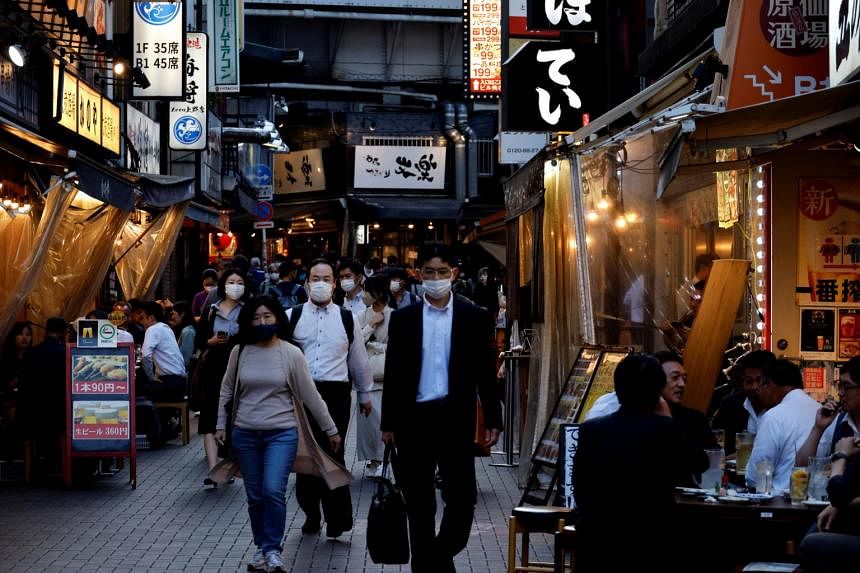TOKYO (REUTERS, THE YOMIURI SHIMBUN/ASIA NEWS NETWORK, BLOOMBERG) – Japan’s top government spokesman on Thursday (July 21) called for the highest vigilance against Covid-19 infections as the nation’s capital, Tokyo, reported 31,878 cases of daily infections, surpassing the 30,000 mark for the first time.
“Nationwide, new infections have reached the highest level ever,” Chief Cabinet Secretary Hirokazu Matsuno told a regular news conference.
“We need to keep a close eye on the infection situation going forward, including the issue of access to medical services, with the highest vigilance.”
In response to the surge of infection cases, the Tokyo metropolitan government on Thursday raised the alert level for the medical system to the most serious on its four-level scale. On July 12, it had asked medical institutions in Tokyo to increase the number of beds for coronavirus patients from 5,000 to 7,000.
A separate alert level for Tokyo’s overall coronavirus infection situation had already been raised to the highest level on July 14. Thursday is the first time since March 17 that both alert levels set by the metropolitan government reached their most serious level.
In Osaka prefecture, there were 22,047 new cases, marking a record high for the second consecutive day. The figure rose more than 12,000 from the same day in the previous week.
Other prefectures, such as Chiba, Hyogo and Okinawa, also saw their infection numbers hit record highs on Thursday.
According to a tally by The Yomiuri Shimbun, the nationwide number of new infection cases exceeded 158,000, setting a new record high for the second straight day.
The rising case counts are forcing political and healthcare leaders to reconsider what steps, if any, are needed to contain the outbreak.
Central government officials have denied the need for fresh restrictions on business activity or movement, saying they will keep a close eye on serious infections and deaths.
While Tokyo’s hospital occupancy rate more than doubled to 43.5 per cent as of Wednesday, from about 19 per cent at the start of the month, deaths remain rare.
Experts on the government’s expert panel are expecting infections to peak this week, said Mr Shinya Tsuzuki, medical industry equity analyst at Mizuho Securities Co. That makes the number of new cases next week, showing whether or not the outbreak is ebbing, even more important, he said.
The number of people with severe infections remains relatively low, so the market is not expecting the government to reimpose strict prevention measures or declare a state of emergency, he said.
